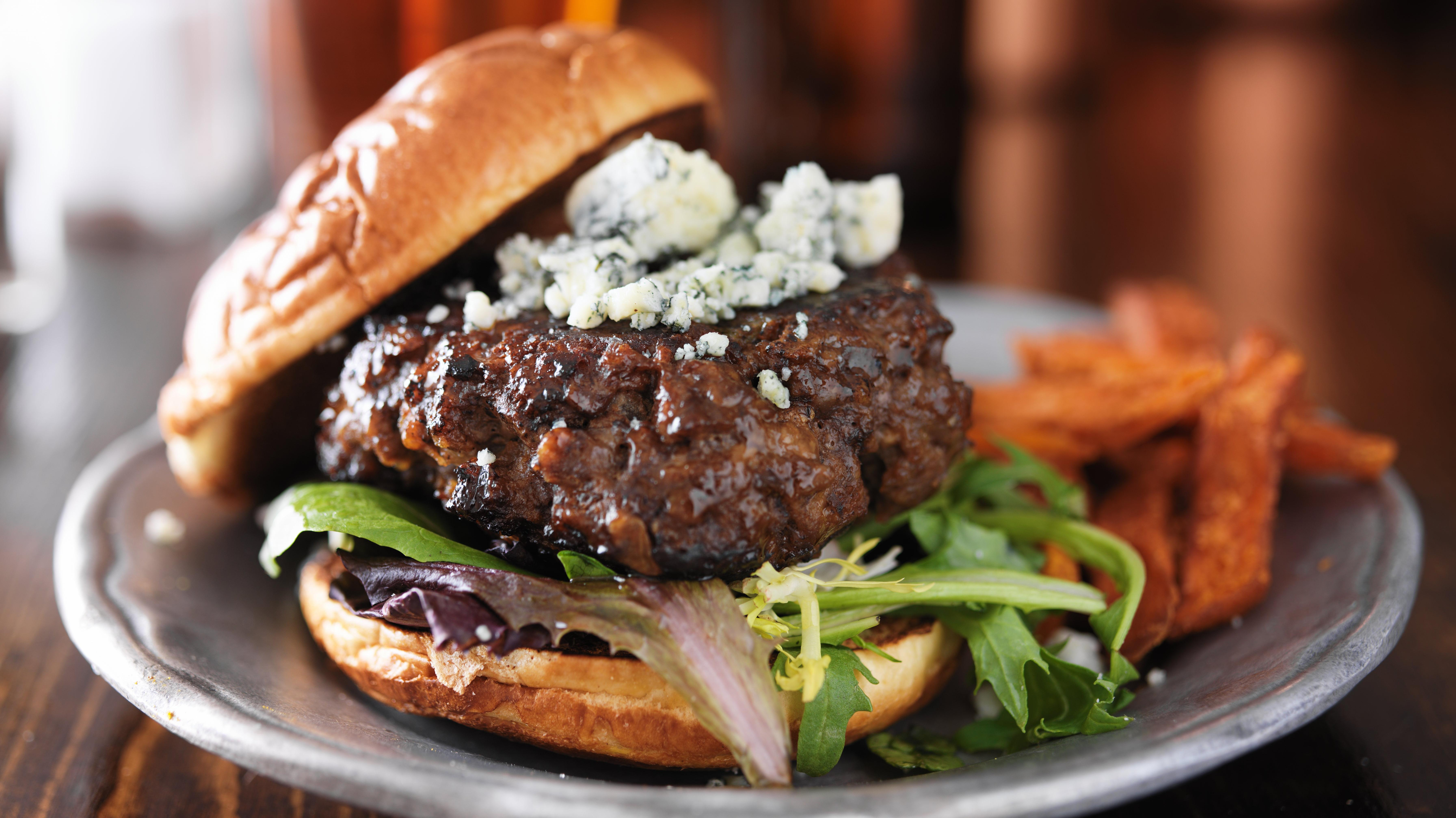The One Item Chefs Dread Adding To The Menu
How the humble burger can wreak havoc on a restaurant's operations.
The New York Times recently published a feature titled "30 Chefs Open Up About Tipping, Gen Z Cooks and You the Customer," a sweeping set of interviews with today's most illustrious culinary professionals that attempts to grapple with where restaurants stand today and everything that goes on inside our favorite establishments. Tucked in among thoughts on tipping, staffing, and drama are a few choice words about a menu item that chefs everywhere seem to have complicated feelings about: the humble burger.
Perhaps unsurprisingly, everything restaurant patrons love about burgers is exactly what chefs hate about them. At its core, the burger is nothing complicated: bread, meat, cheese. It is predictable. It is reliable. And even when it's been zhuzhed up, it's fairly unadventurous. More than anything, it tends to be cheap. When a burger is on the menu, customers' eyes will zoom right toward it—and that can amount to a loss for the restaurant.
"You need to make a certain amount of money per seat," chef Geoff Davis of Burdell told the New York Times. "So if you have $40 or $50 entrees and you have a $19 burger, and a third of the people get the burger, you're losing a huge amount of money."
A burger's cost has been so ingrained in the American consumer's mind by the likes of McDonald's and Shake Shack that once it creeps up past the $15 mark at independent full-service restaurants, patrons often start to complain about the price. Consequently, burgers are priced as cheaply as a business can afford to keep them, hoping to treat them as a loss leader if nothing else.
"We have a burger," chef Kris Komori of Kin told the Times. "You can't be in Boise without having a burger. From a business perspective it doesn't make money. It does help push our cocktail program and our beverage program."
Yet even when burgers do offer restaurants a halfway decent profit margin, for a chef looking to put their establishment on the map, this bar food classic can put a damper on menu innovation. A burger can have the unintended effect of defining a restaurant's cuisine and vibe, even when the rest of the menu goes in a very different direction.
As Nick Meyer, director of operations at Ember Kitchen in Texas, told Tasting Table last year, "We'd much rather be known for salpicon de pulpo, crispy tamal and Josper-grilled items." Thus, if the restaurant eventually offers a burger, it will probably be a "secret" menu item available in limited quantities at the bar.
Still, many restaurants have made peace with the burger as a cost of doing business. As many D.C. chefs explained to Washington City Paper in 2019, fine dining establishments can broaden their customer base by offering a burger, something more patrons can afford.
"What happens is some of our neighbors will pop by between 5 p.m. and 7 p.m., but don't necessarily want the whole menu," said restaurant owner Carlie Steiner to Washington City Paper in 2019, explaining the rationale behind offering an off-menu burger to guests. "It's a nod at our neighbors saying, 'Thank you for supporting us on your special occasion, but we'd like to see more of you so here's an option.'"
If you find yourself always ordering the burger at your local favorites, maybe next time you could try branching out and ordering one of the seasonal specials instead? That would send a true compliment to the chef.
